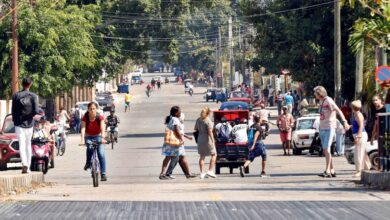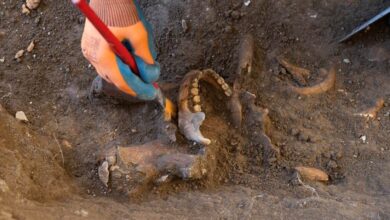The Sinaloa Cartel Remains in Force Despite the Capture of Ovidio Guzmán
The arrest of Ovidio Guzmán is a blow to the Sinaloa Cartel, but it does not limit its power on the Mexican drug trafficking map

Photo: File
LatinAmerican Post | Luis Angel Hernández Liborio
Escucha este artículo
Leer en español: El Cartel de Sinaloa sigue vigente pese a la captura de Ovidio Guzmán
The recapture of Ovidio Guzmán, son of Joaquín "El Chapo" Guzmán, has once again put Mexico in the world's sights, the immeasurable power of drug trafficking in the country generates all kinds of reflections about its scope. Although "El Chapo" is behind bars in the United States, the Sinaloa Cartel continues to operate successfully thanks to its family structure that follows a long line of succession to the throne.
The "Culiacanazo", a Sample of the Power of the Sinaloa Cartel
Sinaloa for many has become synonymous with drug trafficking. Its proximity to the US border, its geography and exit to the Pacific have allowed organized crime to concentrate wealth and power. For this reason, this Mexican state is the stronghold of the Sinaloa Cartel, whose corrupting power and ability to confront the government make it dangerous. In Culiacán, its capital, the "culiacanazo" took place in 2019 with the capture of Ovidio Guzmán. Before it, the cartel did not stand idly by, they immediately began a wave of violence and threats that ended with the release of the drug trafficker a few hours later. The Mexican government headed by Andrés Manuel López Obrador justified the release as a measure to end the wave of violence and to protect citizens from it.
But speculation about what really happened has spawned all sorts of theories. Among them, there are some that link the government of López Obrador with the cartel, although rumors about this type of connection also occurred during the governments of Felipe Calderón and Enrique Peña Nieto, the last two former presidents. Ovidio Guzmán has been detained again in a Mexican government operation, just before Joe Biden's arrival for the North American leaders' summit held in Mexico. After the capture, the cartel again showed its power to generate terror in Sinaloa. Faced with a possible extradition of the son of "El Chapo", his economic power stopped said action thanks to a federal judge who has annulled it, at least for now.
The Line of Succession to the Throne
Few cartels survive the capture of the head of the organization, externally other cartels take advantage of the moment to improve their position, while internally a fight of factions can be generated to take control that can be counterproductive by creating chaos. In this atmosphere, the cartel is vulnerable to the attacks from other organizations and the justice system. In the history of drug trafficking in Mexico and other countries, when the head is removed from power, the cartels usually collapse or split into smaller ones, but the Sinaloa Cartel does not seem to have lost power in 5 years without "El Chapo".
On the contrary, it looks strengthened and continues to operate in Mexico and in strategic places in the world. The reason can be found in its structure. "El Chapo" ruled his empire together with his brothers, sons and "Mayo" Zambada, his main partner. "Los Chapitos", sons of the capo, have been part of the organization since their youth, so without "El Chapo at the helm" they have managed to maintain their influence and power within the cartel. It is through them that the power of the capo, imprisoned for life in the United States, continues to influence decisions. Despite the rumors of internal disputes, the Pacific Cartel continues with a significant presence and without fear of showing its true power.
You can also read:Will The Right Be Able To Regain Power In The Elections In Latin America In 2023?
López Obrador, the Message of the Mexican State Towards Drug Trafficking
AMLO came to power with the promise to end the violence generated by organized crime. In his fifth year of government, the numbers of deaths do not benefit him. His period has been one of the most violent, greater than that of Felipe Calderón and his war against drug trafficking. What role does AMLO have against the drug cartels? His "hugs, no bullets" policy has earned him severe criticism, both from the population and from other political parties, who accuse him of not fighting the Sinaloa Cartel and others in the country. López Obrador in person has visited Badiraguato, Sinaloa, the cradle of the cartel, where he even greeted the mother of "El Chapo". That is something that the opposition reminds him of every moment, and that has fueled theories about the president's relationship with drug trafficking.
The territorial disputes between the numerous existing cartels in Mexico continue daily, generating confrontations that increase the negative figures in the AMLO government. Within those disputes, the Sinaloa cartel continues to occupy a prominent place, thanks to its continuing business in the United States, but its enemies have not given up trying to wrest control from the cartel. At the state level, drug trafficking easily dominates politicians, military, and police who allow it to operate freely. At the national level this also happens, although in a more discreet way. The Mexican State fights drug trafficking despite its corrupting power and also despite its "warlike" power that usually exceeds the capacity of the government itself. The arrest of Ovidio Guzmán will change little or nothing within the cartel and even less in the power it enjoys.





